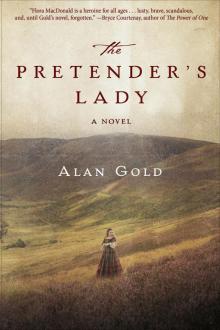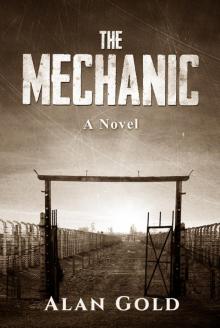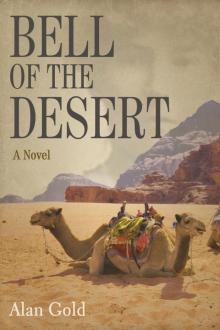Bell of the Desert Read online
Page 6
Hugh tried to console her by taking her to the seaside, by having friends visit her constantly, and by asking her for help with a speech he was to deliver the following month. But she recognized the transparency of what he was doing, and it drove deeper the immense sense of loss she’d suffered. Wherever she looked, at a flower or a cloud or a distant hillside, she saw his face. Never again would she lay underneath the desert stars with his body beside her, enveloped in his gentle love.
Gertrude knew herself well enough to know that were she to stay in England, grief for Henry would overwhelm her. She would become a Queen Victoria and never dress in anything other than black. She would be a figure of pity and retreat to her study to lose herself in her work.
So she determined to take herself to foreign shores, to push herself and her body to the limit in order to expunge the heartache she knew would consume her, and be her end. Life, when she’d left Oxford, had been so open, so full of promise, so inexpressibly exciting. She was rich, attractive, intelligent, vigorous, and aching to take on any challenge which life presented. But after the enriching intellect of Oxford, she’d suffered a series of frustrations, of the mind, the body, and especially of her expectations of what she would do with her life. In just a few short years she’d transmogrified from an open, cheery, and vivid girl into somebody in danger of becoming intellectually and physically dowdy. She felt frustrated, depleted, and depressed, as though all the expectations to which she was entitled had been pulled away from her by some malicious sprite who was manipulating the strings of her life. Nothing, now, gave her pleasure. Not riding horses, reading, talking, food . . . nothing.
Six months after Henry’s death, she knew she had to regain her control of life, or she’d be buried by a mountain of trivia and for the rest of her days, deal in nothing but irrelevancies. She had to get out, leave the mausoleum of her life. She had to travel, to see more of the world, to go places where adventure was the everyday currency of life. And the more she thought of where she should go and what she should do, the more she thought back to an orchard in Bucharest and a mysterious Arab. What was it about him and his people that fascinated her? Why did he radiate a light in her otherwise bleak existence?
THREE
Switzerland, August 1901
Since Henry’s death, Gertrude had traveled around the world for a second time, improved her proficiency in Arabic for what she called her great mission, and taught herself the new science of archaeology. She wrote and published her first travel book, Persian Pictures, to great critical acclaim, the reviewer in The Times calling it “an outstanding explication of this mysterious region’s culture.” It was dedicated to Henry.
Determined to uncover the vast treasury of hidden civilizations buried for millennia in the sand, she set out to travel to Arabia. She booked her passage to the south of France, but a week before she was due to leave, an article in The Times caught her eye. In January, Queen Victoria had passed away, the longest-serving monarch in British history, and to mark her reign after the proper period of mourning, the newspaper had challenged its readers to think of ways in which they, as individuals, could commemorate the queen’s sovereignty. The newspaper asked red-blooded men to exercise their imaginations, to push their bodies to the limit in breaking records and to perform previously impossible tasks as a way of ending one great era in British life, and beginning another under King Edward.
Gertrude, shrewdly reading between the lines, realized that the editors of the newspaper were poking Edward in the ribs. Whereas his mother had been a model of propriety and rectitude, and her consort Albert had been the figurehead for British innovation in science and industry, King Edward was seen as pampered, self-indulgent, excessive, and morally fallible. So they had decided to show the new king that Britain had become great because of the greatness of its people, and that if he wanted to be a ruler, then he had to change his ways.
And Gertrude decided to take up the challenge by breaking a mountain climbing record. She’d always been a climber and since her childhood had scaled the peaks on her property at Rounton Grange. She’d climbed in the Lake District, in Scotland and in Wales, and although Swiss mountains were far higher and more challenging than anything she’d previously climbed, she felt up to the task.
She didn’t tell her family, because she knew they’d object at her endangering her life in such a fashion. But Gertrude knew herself well enough to know that only by testing her mind and body to the limit would she be able to succeed with her dream of making Arabia into one great nation. All her life, she’d been surrounded by the benefits of civilization and she knew with certainty that her great adventure meant her spending years in the worst deserts on Earth, the Nefud and the deserts of Arabia, uncharted, and uncivilized landscapes compared to England’s green and pleasant land. So it was important for her to understand the limits to which her body and mind could be pushed. And what better place than in the unfamiliar domain of the gods of the mountains, maybe even winning a mention in The Times?
Out of the bedroom window of her hotel outside of Berne, Gertrude, now thirty-one, stared at the magnificence of nature and the distant lofty Finsteraarhorn. Still strikingly attractive with her red hair and tall carriage, she’d packed a lifetime of adventures into the time since Henry’s death. She’d travelled wherever her fancy and interests took her. But whether she was in Palestine, in Syria, approaching Hong Kong through azure seas or lying beside a brook in her beloved home of Rounton Grange in Yorkshire, she was always at one with nature. And when she saw nature, she saw Henry’s face. Everything seemed to remind her of Henry. She no longer cried and withdrew when she thought of him. Time and experiences had dulled the despair his death had caused, but she still strove to fill the aching void which his death had left in her life.
For the past few years, she’d traveled all over the Middle East, gone to places never before seen by an Englishman, learned their languages and sat cross-legged drinking coffee and eating sheep’s eyes with Bedouin chieftains.
Because of her growing intimacy with Arabia, when she returned to Great Britain, she was sought out by the government for her understanding of local events and her insights into Arab politics. The British government, partly because of the growing expertise of people like Gertrude, was beginning to appreciate the strategic importance of the Arab area, both because of the Suez Canal as a route to India, and because of the discoveries of vast quantities of oil.
As a result, Gertrude had written major reports for the British government on the disposition of the Ottoman military forces in Arabia, Southern Turkey and the Levant, and had twice been mentioned in the Westminster Parliament as an asset to the British Crown.
Despite her father’s concern at the way she was continually pushing herself and her body, Gertrude’s voluminous letters home continued to reassure him that she knew precisely what she was doing, and it was the only way she could retain her sanity. But this time, because she wanted, no, needed to scale the magnificence of Switzerland’s mountains, she’d written to her father telling him that she was merely visiting friends.
Looking beyond her reflection, she stared up at the peaks and saw in the distance the Engelhorn, the snows of the insurmountable caps of the Wetterhorn, the Mittlehorn, and the Rosenhorn. The mountains were outlined in vivid contrast against the clear black night by the brilliance of the full moon, whose radiance overpowered the cold light of the invisible stars, so different from that night in the deserts of Persia only eight short years ago when the stars shone on her and Henry, and seemed to give approval to their love.
Gertrude was daunted by the height of the mountains, but her inner compulsion drove her to scale, to achieve, to conquer. She rose at 3:00 the following morning and by 4:00 was already dressed in her blue climbing suit, made especially for her by Hegrés of Paris. She placed the tiny statuette of the goddess Arinnitti in the specially made inner breast pocket, and descended the hotel’s staircase in order to meet her guides outside the hotel for the assault. T
hey were two Swiss brothers, Ulrich and Heinrich. Tall, fair-haired, muscular, and utterly devoid of a sense of humor. She asked playfully, “Will I be safe in your hands, a single woman on a Swiss mountain in the company of two rugged young men?”
Ulrich replied laconically, “Is danger, yes. Stay close to me and you be alright. Some peaks are unclimbable and you will not attempt, yes? Others we will attempt. You will be third. One Heinrich, two Ulrich—me—three you, Gertrude. Understand?”
She shrugged and wondered how demoralizing the three day journey ascending the foothills would become with the brothers grim. At first, the scree was loose and slippery and she found struggling up an incline with a heavy backpack, her feet constantly slipping backwards on the loose stones, to be nearly impossible. But Ulrich and Heinrich were manfully storming ahead of her, and she was determined not to have them wait. So she ran upwards, slipped, ran more and eventually reached them. They were hardly out of breath and she fought to get air into her lungs, gasping in shallow pants and trying to remain inaudible so they didn’t turn and realize she was in distress.
Soon the scree gave way to large, perpendicular boulders, worn smooth by eons of erosion. The two men clambered over them as though they were pebbles, but Gertrude eventually found her centre of gravity and learned quickly how to position her body low to the rock so she didn’t fall backwards.
And then came the snowline. They climbed higher and higher, the top of the mountain disappearing and reappearing as they traversed arêtes, saddles, and ridges on the way up. As the ascent became steeper, Ulrich turned, and said, “Here is to get difficult. Now to turn back if you don’t wish to go up. Nor I nor Heinrich have climbed beyond this.”
“We will ascend. I didn’t come this high to be a tourist. I climbed to get to the other side.”
Both men nodded and Gertrude wondered if she saw a glint of emotion in their eyes, possibly admiration? They began to clamber up the almost vertical sides of an arête which linked two deep valleys. Only by climbing to the top of the arête and somehow walking along its length could they reach the upper part of the saddle which would lead them to a pass between the two peaks. One slip, one false move, and, although roped together, they would all plunge a thousand feet to their deaths. This was no longer a time of physicality or testing ones resolve, Gertrude knew. It was a moment of life and death. It was what she’d come to Switzerland to face. Meeting such dangers was the only time she felt truly alive. Now, as she stared upwards at the sheer cliff, which had never before known the feel of human feet on its unconquered crags, she felt a sense of paralysing fear, but at the same time, relished how far she could push herself, desperate to know how her mind would cope.
When they reached the vertical snow and rock wall, Heinrich positioned himself like a statue at its base and readied himself for his brother’s weight. Ulrich climbed onto Heinrich’s shoulders, but despite balancing and feeling with his gloved hand, couldn’t find any indentation on which he could lever his body upwards.
Against the increasingly banshee howling of the wind, Gertrude screamed, “I’ll climb onto Heinrich’s shoulders, and you climb onto mine.”
She gripped the young man’s shoulders and hauled herself up his back until her waist was level with Ulrich’s feet. Grasping his ankles to let him know that he had to move aside to let her transplant herself into his position, Ulrich now looked to the side for somewhere to stand. Reaching as far over as he could, he hammered a pin into the ice and rock, from which he hung a carabiner, securing the rope which held him so he could swing away while Gertrude climbed onto Heinrich’s shoulders.
The Swiss seemed to hang there, high above the ground, watching Gertrude carefully reach upwards, handhold over handhold until her feet were placed firmly on Heinrich’s shoulders.
“Are you alright?” she screamed down to him, her words disappearing in the gale.
He shouted back a muffled “Ja!”, and Gertrude dug pins into the wall as handholds so she could position herself more safely.
Now it was time for Ulrich to swing back and begin to climb up Gertrude’s body until he stood on her shoulders. He was unbearably heavy and Gertrude was terrified that he’d dislocate her shoulder. His weight pressed down on the soft parts of her shoulders, but there was nothing she could do. Any movement, any adjustment of her position to try to make herself more comfortable, would likely see them all plummet downwards into an icy grave. He was hurting her badly, but she was determined to show no signs of weakness. In the game of life and death she was playing, the pain felt strangely comforting. It told her she was alive. She felt him adjusting his feet on her shoulders until he was on tip-toe, but was despondent when he called out loudly against the wind, “Are no handholds. I feel not secure. I could fall. Then we all die. I will come down.”
“No!” Gertrude yelled. “I’ll raise my arm. You climb onto my hand and get more height. You must be near the top of the ridge.”
Against the weight of his body, she lifted her arm and felt his leg leave her left shoulder and reach upwards until his toes found her extended gloved hand. Heinrich’s body started to sag under the weight of the two on top of him. Suddenly the wind had picked up even more sharply, and flurries of icy snow were blowing onto her body and face, making her both wet and freezing cold, a cold which cut through her fleece-lined clothes and touched her naked flesh. She began to shiver, but fought to stop any movement which might be transferred upwards and make Ulrich even more insecure. She felt the outline of the tiny idol Arinnitti pressing into her breast as she strained every muscle in her body against Ulrich’s weight. Even the slightest unbalancing of the man standing on her hand could see him plummet.
Ulrich’s weight was incredible, and she was certain her arm would bend and he’d plunge screaming downwards, pulling the two of them with him into the bottom of the valley and certain death, far below.
“How long can you hold?” he shouted. She could barely hear his voice above the banshees which were screaming from the top of the mountain.
“Can you get a hand-hold? Don’t worry about me. I can stay like this forever,” she said, biting her numb lip against the weight and cold.
“Is nowhere.”
“Ulrich, come down” screamed Heinrich, whose body was about to collapse like a concertina. The sudden freezing cold was sapping him of strength and he could feel his body weakening to the point where he could no longer remain standing. The combined weight of Gertrude and his brother were forcing his knees to bend. He didn’t know how to stop it happening.
“No!” screamed Gertrude again. “No, stay and try to find a handhold to pull yourself up. If you come down, we’ll never make it across.”
She began to count the seconds to see how much longer she could remain supporting Ulrich on her single outstretched hand. She’d never in her life felt under so much strain. Her muscles were shrieking, her bones bending. She was beginning to feel faint from the unyielding pressure of the weight of a big young man standing on her one up-stretched hand. She began to whimper, but silently, so neither of the men could hear.
And suddenly, the massive downward pressure on her arm ended as Ulrich yelled out an exultant cry. He’d found a grip in the ice and rock, and was able to haul himself up and off the two of them. The sudden removal of his immense weight from her shoulders and hand caused a rush of blood to her arms, face and chest. She felt warm and suddenly secure, even though she was still perched precariously on Heinrich’s shoulders and could fall to her death at any moment. But she was suddenly suffused with joy at Ulrich’s advance.
“Yes!” she shouted. “Yes, you’ve done it. Oh, well done, Ulrich.”
She heard him hammer pins into the rock, splinters of ice falling down on her face. But after a few moments, she felt the rope around her waist and shoulders suddenly become taut and pull upwards as Ulrich, now sitting on top of the ridge, hauled first Gertrude, and then Heinrich upwards to a sitting position. They had ascended nearly thirty seven vertical feet and managed t
o do what had, for all times, been impossible. They had ascended the pass. Now they had to struggle inch by inch along the upwards trajectory of the arête in order to reach the relative security of the saddle between the middle and the upper part of the mountain where they could rest, have a warm drink and regain their energy before continuing their climb upwards and over the pass.
An hour later, the three of them lay in the lee of an overhang out of the path of the wind and snow, drinking warm chocolate and eating biscuits to give them an immediate energy boost.
“I not believe,” said Heinrich. “Till today, this pass never climbed. Now we are over it. You are brave Englishwoman,” he told her.
Ulrich nodded while Gertrude, still aching from the stressed muscles in her arm and shoulders, basked in their praise.
“Please,” said Ulrich. “May I kiss you? I wish to kiss the lady who climbed Gertrudespitze.”
“You’re calling a mountain after me?” asked Gertrude in shock.
“Of course. To you goes the honor.”
“But you two . . . .”
“We are guides only. This is why you will kiss me. Yes?” said Ulrich.
“Certainly,” she beamed. She kissed the two young men on their frozen cheeks, and without them seeing, took the idol Arinnitti out of her inside pocket, and kissed her Henry, thanking him for protecting her yet again.
The idol, whose face and features she knew better than anything on Earth, looked back reproachfully at her, the mournful eyes, pouting breasts and swollen belly seeming to say, enough of this cold. I need to be back in the warmth of the desert.
“And so you shall, my love,” said Gertrude, putting Arinnitti safely back into her jacket. She surveyed the vista before her, still dazed by the brilliance of the snow despite her dark goggles. But soon she would be back in her hotel room, and there she would write to the editor of The Times, informing him that Miss Gertrude Bell had taken up his challenge, succeeded, had a mountain pass named after her, and pointing out the fact that she wasn’t a red-blooded English man, but an English women.

 Birthright
Birthright The Pretender's Lady
The Pretender's Lady The Mechanic
The Mechanic Bloodline
Bloodline Bell of the Desert
Bell of the Desert Bat out of Hell
Bat out of Hell Stateless
Stateless